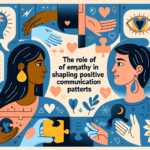
Introduction
In the fast-paced world we live in, mental health has become an increasingly important topic to discuss and address. As individuals seek emotional support and guidance, the terms "therapist" and "psychologist" often arise. But how do you know who to turn to for support when it can feel like navigating a labyrinth of options? In this comprehensive article on "Therapist vs. Psychologist: Who Should You Turn To for Support?," we will explore the distinctions between these two professions, helping you make an informed choice tailored to your unique needs.
Understanding the Roles
What is a Therapist?
A therapist is a broad term that encompasses various mental health professionals, including counselors, social workers, and marriage and family therapists. Therapists typically hold a master’s degree and may be licensed to practice in their respective fields. They often use talk therapy and other techniques to help clients cope with life’s challenges, ranging from anxiety and depression to relationship issues and grief.
What is a Psychologist?
A psychologist, on the other hand, holds a doctoral degree (Ph.D. or Psy.D.) in psychology. They are trained in the assessment, diagnosis, and treatment of mental health disorders. Psychologists often engage in research and may utilize specialized techniques, such as cognitive behavioral therapy (CBT) or psychoanalysis. They can also offer psychological testing, providing a more comprehensive understanding of your mental health.
Key Differences
To simplify the decision-making process, let’s break down the key differences between therapists and psychologists.
| Aspect | Therapist | Psychologist |
|---|---|---|
| Education | Master’s degree | Doctoral degree |
| Licensing | Varies (some require licensure) | Must be licensed to practice |
| Specialization | Generalist (counseling, marriage, etc.) | Specialist (diagnostic and therapeutic) |
| Treatment Techniques | Talk therapy, supportive counseling | Research-based therapies, psychological testing |
| Focus on Mental Disorders | Broad mental health support | Diagnosis and treatment of mental illnesses |
Real-World Applications: Case Studies
Case Study 1: Anxiety Relief
Sarah, a 28-year-old graphic designer, had been struggling with anxiety for years. She felt overwhelmed by her responsibilities at work and in her personal life. After discussing her feelings with a friend, she was directed to a licensed therapist. During their sessions, Sarah learned coping strategies and mindfulness techniques tailored to her situation.
Analysis: In Sarah’s case, a therapist was most appropriate. The focus was on developing coping skills in a supportive environment, rather than diagnosing a specific disorder.
Case Study 2: Diagnosing Depression
Mark, a 40-year-old accountant, was experiencing persistent sadness, fatigue, and difficulty concentrating. After seeking help, he scheduled an appointment with a psychologist. Through comprehensive psychological assessments, Mark was diagnosed with major depressive disorder and began a treatment plan that included CBT.
Analysis: Here, the psychologist’s ability to diagnose Mark’s disorder was crucial. Therapy sessions were structured around evidence-backed treatments that aimed to alleviate his symptoms effectively.
Case Study 3: Relationship Counseling
Emma and Jake, a married couple, faced numerous challenges in their relationship and decided to seek help. They visited a marriage counselor—a type of therapist specializing in relationship issues. Through open communication techniques and conflict resolution strategies, they were able to improve their relationship dynamics.
Analysis: This case illustrates how therapists can focus on specific relationship problems and use tailored strategies to help clients navigate their issues effectively.
When to Choose a Therapist vs. a Psychologist
Consider Your Needs
- Immediate Support: If you need immediate emotional support or coping strategies for everyday stressors, a therapist may be the best option.
- Diagnosis and Treatment: If you suspect you may have a diagnosed mental health condition that requires specialized treatment, a psychologist is more suited for your needs.
- Depth of Issues: For deeper psychological evaluations or long-term therapeutic solutions, a psychologist’s training offers additional expertise.
Your Goals Matter
Ask yourself what you aim to achieve. Is it coping mechanisms for daily stress, or a better understanding of your mental health? Your goals can significantly influence your choice between a therapist and a psychologist.
Mental Health Trends and Statistics
According to the National Institute of Mental Health (NIMH), nearly 1 in 5 adults in the U.S. live with a mental illness. This statistic underscores the relevance of understanding the differences between therapists and psychologists. Here’s a snapshot of treatment trends in the U.S.:
| Treatment Type | Percentage of Mental Health Patients Seeking Help |
|---|---|
| Psychotherapy (Therapists) | 43% |
| Psychological Assessment (Psychologists) | 24% |
| Combined Therapy | 33% |
These numbers indicate that a significant number of individuals are seeking support, highlighting the importance of knowing the right professional to turn to.
Popular Misconceptions
Misconception 1: All Therapists Can Diagnose
While many therapists provide support for mental health issues, not all are licensed to diagnose psychological disorders. This is often a gray area in many individuals’ understanding of "Therapist vs. Psychologist: Who Should You Turn To for Support?"
Misconception 2: Psychologists Only Work with Disorders
Another common misconception is that psychologists are only for severe mental health conditions. In reality, psychologists can also help individuals improve overall mental wellness, not just focus on pathology.
Misconception 3: Therapy Takes Forever
Many people believe that therapy is a long-term commitment. While some may require ongoing sessions, many clients find relief after a few targeted sessions, especially when working with a focused therapist or psychologist.
Additional Factors to Consider
Insurance and Cost
Before choosing between a therapist or psychologist, it’s essential to check your insurance coverage. Many therapists may be more affordable, while psychologists might charge higher rates due to their advanced training and specialization.
Location and Availability
Geographic factors may also influence your decision. Finding a qualified professional in your area who fits your needs might help streamline your search process.
Conclusion
Deciding between a therapist and a psychologist can be a daunting task, but understanding the fundamental differences and aligning them with your needs makes the process much easier. Whether you’re seeking immediate emotional support or require a thorough psychological evaluation, both professionals offer unique contributions to your mental health journey.
Ultimately, the most important step is realizing that seeking help is a strength, not a weakness. Both therapists and psychologists play valuable roles in the mental health landscape, and understanding who can best assist you is essential to achieving emotional well-being. So, take the time to assess your needs, and don’t hesitate to reach out for support; your mental health matters.
FAQs
1. Can a therapist provide medication?
No, therapists typically do not prescribe medication. If medication is needed, a psychiatrist or psychologist may be consulted.
2. How do I find a qualified therapist or psychologist?
Online directories, word-of-mouth recommendations, and your insurance provider can offer leads on qualified mental health professionals in your area.
3. Are online therapy sessions effective?
Yes, many studies show that online therapy can be as effective as in-person sessions, making it easier to access support from home.
4. How long should I expect to be in therapy?
The length of therapy varies based on individual needs. Some may see progress in a few sessions, while others may benefit from longer-term support.
5. What should I expect during my first session?
Your first session will likely involve discussing your background, current concerns, and treatment goals. This helps establish rapport and guide your therapeutic journey.
By understanding the differences in "Therapist vs. Psychologist: Who Should You Turn To for Support?", you can make informed decisions and embark on a path toward better mental health. Don’t hesitate to take that first step; help is available, and you deserve it.

















